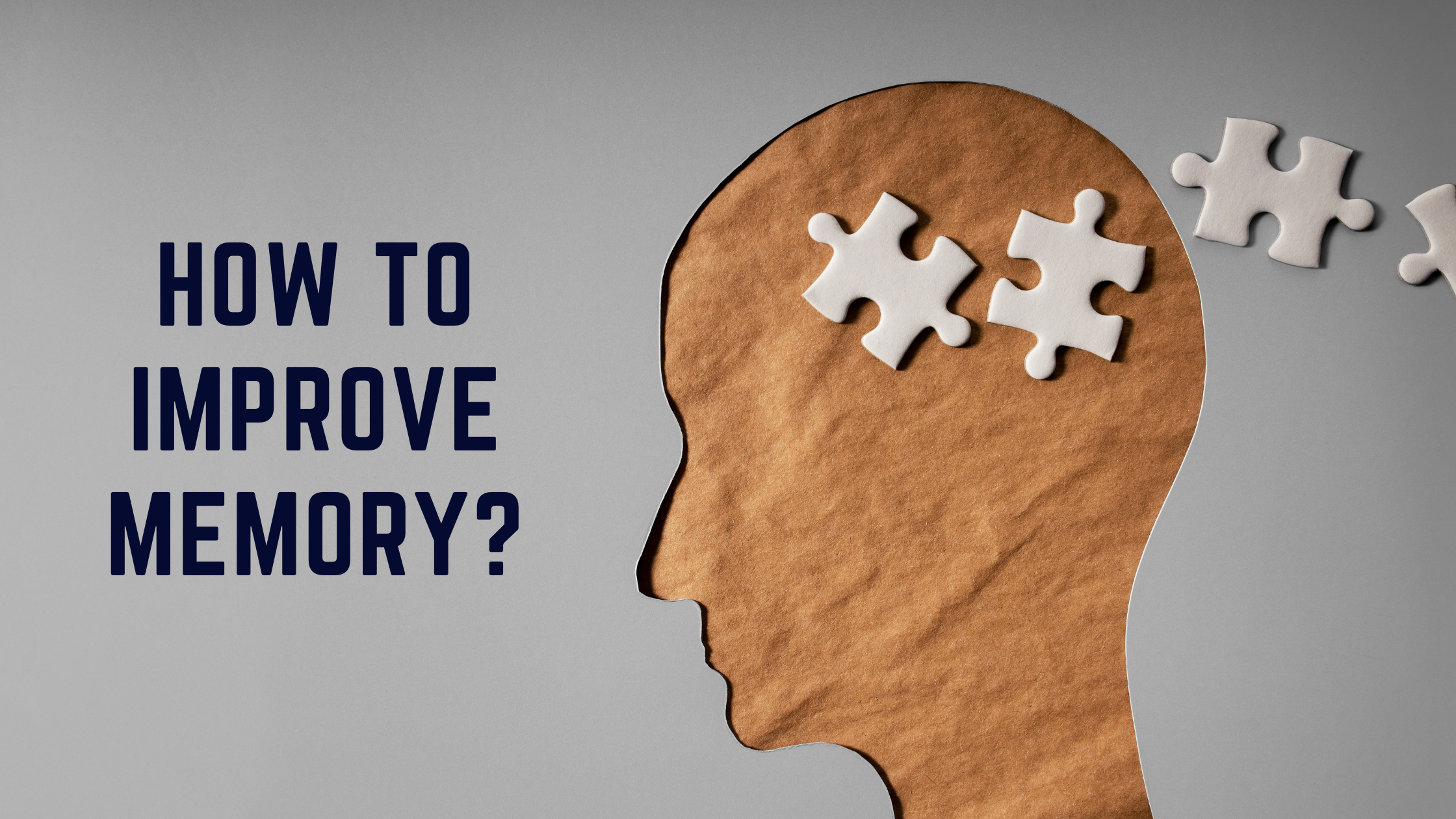How to Improve Memory: Memory is an important mental function that shapes our daily lives, from determining important tasks to recalling special moments. As we steer the demands of a fast-paced world, the ability to retain and recall information becomes increasingly important. Fortunately, different strategies and lifestyle changes can contribute to enhancing memory. In this article, we will talk about practical tips and strategies to boost memory and improve mental processes.
Also Read:
- How to Find Joy in Little Things?
- How to Increase Attention Span?
- How To Be Successful?
- How to Manage Stress at Work?
How to Improve Memory?
Stay Physically Active
Physical exercise is not only for the body but also for the brain. Engaging in regular aerobic exercise has been shown to improve memory and cognitive function. Exercise increases blood flow to the brain, promotes the release of neurotransmitters, and encourages the growth of new neurons, especially in the hippocampus, a region critical for memory.
Consider including activities such as walking, jogging, swimming, or yoga in your routine. Aim for at least 150 minutes of moderate-intensity exercise per week to experience the cognitive advantages connected with physical activity.
Prioritize Quality Sleep
Quality sleep is important for memory consolidation and overall cognitive performance. During sleep, the brain processes and manages information gathered throughout the day, maintaining neural connections and transferring memories from short-term to long-term storage.
Set a consistent sleep routine, aiming for 7-9 hours of uninterrupted sleep each night. Create a sleep-conducive environment by keeping your bedroom dark, quiet, and cool. Avoid the usage of electronic devices before bedtime, as the blue light emitted can interrupt with the production of the sleep hormone melatonin.
Maintain a Healthy Diet
Nutrition plays an important role in brain health, and certain foods are known to support memory and cognitive function. Include a variety of nutrient-rich foods in your diet, such as:
- Omega-3 fatty acids: Found in fatty fish, flaxseeds, and walnuts, omega-3s are important for brain function and may improve memory.
- Antioxidants: Berries, dark chocolate, and leafy green vegetables are rich in antioxidants, which help save the brain from oxidative stress.
- Vitamins and minerals: Provide an adequate intake of vitamins B, C, D, and E, as well as minerals like zinc and magnesium, which are important for brain health.
Engage in Mental Stimulation
Challenging your brain with new and exciting activities can promote the development of neural connections and improve mental abilities. Activities that need mental effort, such as puzzles, games, and learning a new skill or language, can contribute to improved memory.
Combine mental activities into your routine, such as crossword puzzles, Sudoku, chess, or even taking up a new hobby. Continuous learning and intellectual curiosity contribute to the flexibility and adaptability of the brain.
Practice Mindfulness and Meditation
Mindfulness and meditation practices have been shown to completely affect memory and attention. By fostering a heightened awareness of the present moment, these practices can ease stress, enhance focus, and improve overall mental function.
Consider including mindfulness meditation in your everyday routine. Start with short sessions, concentrating on your breath and bringing your attention back to the present whenever your mind strays. Over time, mindfulness can become a powerful tool for supporting mental clarity and enhancing memory.
Stay Hydrated
Proper hydration is important for overall health, including cognitive function. Dehydration can damage concentration and short-term memory. Make sure you are drinking enough water throughout the day to maintain optimal cognitive performance.
A general guideline is to consume at least eight 8-ounce glasses of water daily, but people’s requirements may differ based on factors such as age, activity level, and climate. Pay attention to your body’s signals and increase water intake if you feel thirsty.
Handle Stress Gracefully
Chronic stress can have harmful effects on memory and cognitive function. High levels of stress hormones, such as cortisol, can interfere with the formation of new memories and contribute to memory recovery problems.
Include stress management techniques into your everyday life, such as deep breathing exercises, developed muscle relaxation, or engaging in activities that bring you joy and relaxation. Setting a healthy work-life balance and seeking support when needed are also important for stress removal.
Socialize and Build Connections
Keeping strong social connections and engaging in meaningful conversations can have positive effects on cognitive function and memory. Socializing boosts the brain, triggers multiple neural pathways, and delivers possibilities for constant learning.
Make an effort to spend time with friends and family, join social groups, or participate in community activities. Meaningful conversations and shared experiences contribute to a rich cognitive environment that supports memory.
Take Professional Guidance
If you notice constant memory concerns or cognitive challenges, it’s important to seek professional guidance. Memory issues can sometimes be indicative of underlying health conditions, such as vitamin deficiencies, hormonal imbalances, or neurological disorders.
Consult with a healthcare professional or a cognitive specialist to undergo a complete examination. Early detection and intervention can be important for managing and addressing any underlying reasons for memory impairment.
At The End
Improving memory is a holistic effort that includes a combination of lifestyle choices, mental habits, and wellness practices. By including these techniques in your daily routine, you can create a brain-friendly environment that supports optimal cognitive function. Remember that small changes can lead to substantial improvements over time, contributing to a sharper and more resilient memory.








